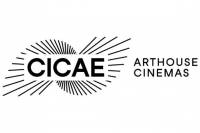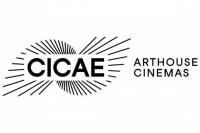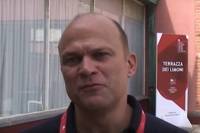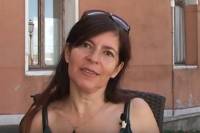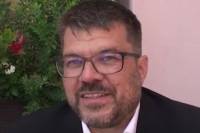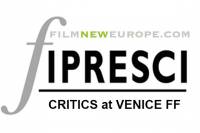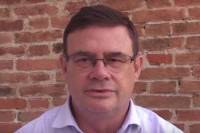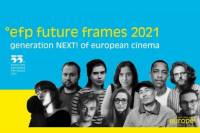FNE Podcast: Venice 2021: CICAE Arthouse Cinema Training: Boglárka Nagy and Javier Pachón
Region 09-09-2021VENICE: FNE spoke to Boglárka Nagy, the managing director of the Confederation of Arthouse Cinemas CICAE and the Arthouse Cinema Training, and programme coordinator Javier Pachón, who summed up the insights shared and lessons learned by the participants at the CICAE training programme on the island of San Servolo in Venice this year.
FNE spoke to Christian Bräuer: President of the International Confederation of Arthouse Cinemas CICAE about the mission of CICAE and the future of art house cinema after the pandemic.
FNE spoke to Mira Staleva, one of the trainers at the International Confederation of Arthouse Cinemas CICAE Arthouse Cinema Training on the island of San Servolo in Venice. Mira Staleva runs Cinema House in Sofia and is a director at Sofia IFF in Bulgaria. She is also involved in production, distribution, exhibition and audience development projects.
FNE spoke to Slovak director Peter Kerekes about his new film 107 Mothers / Cenzorka, a Slovak/Czech/Ukrainian coproduction that is screening in the Orizzonti competition of the Venice Film Festival.
FNE spoke to the participants at the International Confederation of Arthouse Cinemas CICAE Arthouse Cinema Training on the island of San Servolo in Venice to ask them about their experience during the programme and the future of art house cinema after the pandemic.
VENICE: FNE has teamed up with FIPRESCI critics attending the Venice Film Festival to rate the films in the Main Competition, Orizzonti, Venice Days and Critics Week giving the films 1, 2, 3, 4 or 5 stars. 5 is the best and 1 is the worst. The ratings give an overview of critics’ opinions from a large number of countries and provide insights to what critics in many different countries think about the programme.
VENICE: FNE asked Pascal Diot how the Venice Production Bridge has managed to continue its work during the COVID pandemic and what changes he expects to see in the film industry in the post-pandemic future.
KARLOVY VARY: As Far as I Can Walk / Strahinja Banović (Serbia, France, Luxembourg, Bulgaria, Lithuania) directed by Stefan Arsenijević won the Crystal Globe Grand Prix, also scooping the prizes for Best Actor and a Special Mention for Best Cinematography at the 55th Karlovy Vary International Film Festival, held from 20 to 28 August 2021 in the Czech spa town of Karlovy Vary.
FNE spoke to nine European film school students and recent graduates to find out what they think about the future of European film.

